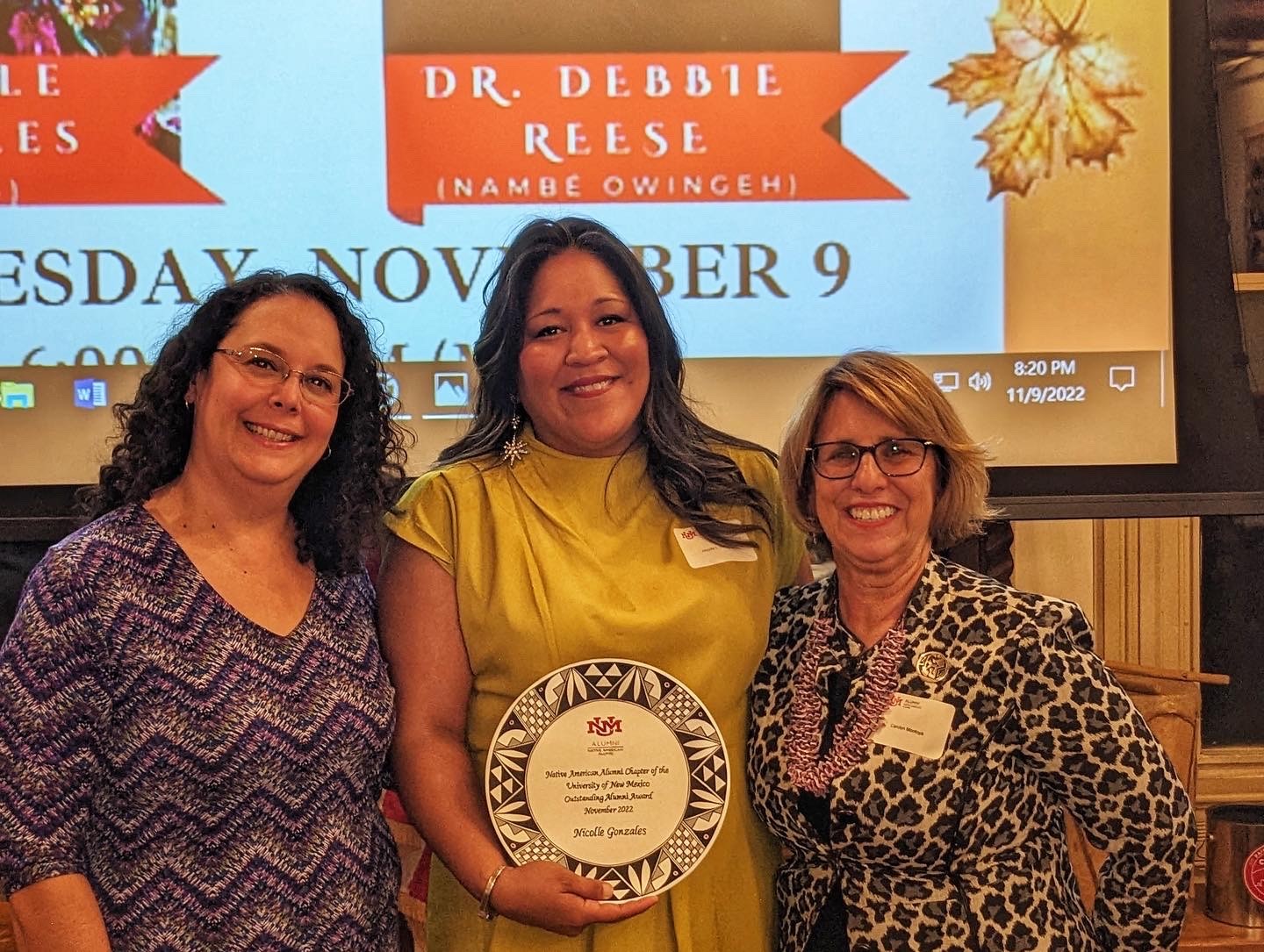Nicolle L. Gonzales, BSN, RN, MSN, CNM, has dedicated her career to supporting Indigenous birthing traditions and culture to ensure Native American people can give birth on their territories while being supported by their own Indigenous midwives.
The University of New Mexico College of Nursing alumna and Diné nurse midwife was recently recognized for her work by the UNM Native American Alumni Chapter and was presented with its inaugural award, alongside Nambé Pueblo’s Debbie Reese, PhD, founder of American Indians in Children’s Literature.
After years of working as a midwife in her community on the Navajo Nation and seeing many Native American women struggle with navigating the Western health care system, Gonzales felt there was a better way to center the needs of the women and families she cared for.
She founded the Changing Woman Initiative, a Native American-led women’s health collective dedicated to renewing cultural birth knowledge to empower and reclaim sovereignty of Indigenous women’s medicine. The collective is committed to promoting reproductive wellness, healing through holistic approaches and to strengthening women's bonds to family and community.
One of the goals of Changing Woman Initiative is to develop a Native American reproductive wellness and birth center, which would be the first in the nation.
Through Gonzales’s leadership a midwifery director, the collective has also created a pilot Indigenous Midwifery Student Fellowship program to support the next generation of Indigenous midwives.
In addition to her work, Gonzales continues to give back to the community in several ways.
She has served on two birth center boards in New Mexico. She has been a mentor for emerging Native American midwifery students at UNM and continues to support future midwives.
She also provides training for Indigenous birth workers in New Mexico. Gonzales also uses her experience and expertise as a consultant to help Native American tribes and heath care organizations address system changes impacting maternal health outcomes in their communities.
